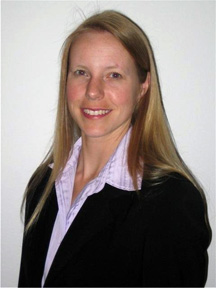By Sara Reeve
The National Heart, Lung and Blood Institute has awarded a five-year, $4 million grant to a USC research team to discover whether stress in the lives of working mothers influences risk of childhood obesity in their children.
The project, “Maternal Stress and Children’s Obesity Risk,” led by Genevieve Dunton, PhD, MPH, will monitor stress levels in mothers through a smartphone app, as well as through salivary cortisol.
“We will examine how parenting practices related to children’s eating and physical activity such as modeling, restriction, and encouragement may be compromised on days when mothers experience higher levels of stress,” said Dunton, assistant professor in the Departments of Preventive Medicine and Psychology at the Keck School of Medicine of USC.

Genevieve Dunton, PhD, MPH, assistant professor in the Departments of Preventive Medicine and Psychology at the Keck School of Medicine of USC, will lead a new NHLBI-funded project on how mothers’ stress can affect obesity risk in children.
(Photo/Courtesy Genvieve Dunton)
Approximately 200 ethnically and economically diverse working mothers and their 9- to 11-year-old children will participate in in the study over a three-year period, allowing the research team to track obesity risk trajectories during the pre-teen and early teen years.
“Parental stress is an understudied factor that may undermine parenting practices related to children’s dietary intake and physical activity,” said Dunton. “This study will help to identify families whose children are at greater risk of obesity progression into adolescence based on working mothers’ levels of stress.”
In addition to recognizing at-risk children, researchers will develop tools to help mothers reduce the impact of stress on their children’s eating habits and physical activity.
“The results will inform the development of novel interventions that help working mothers to reduce the negative effects of stress on weight-related parenting practices, and foster family environments that can buffer the effects of maternal stress on children’s obesity risk,” Dunton said. “Given the detrimental health effects and enormous costs of childhood obesity, such information could be of significant value to efforts to improve public health.”
This study brings together an interdisciplinary team of researchers from the Keck School; the USC Dornsife College of Letters, Arts, and Sciences; the USC Davis School of Gerontology; and the USC Spatial Sciences Institute.

